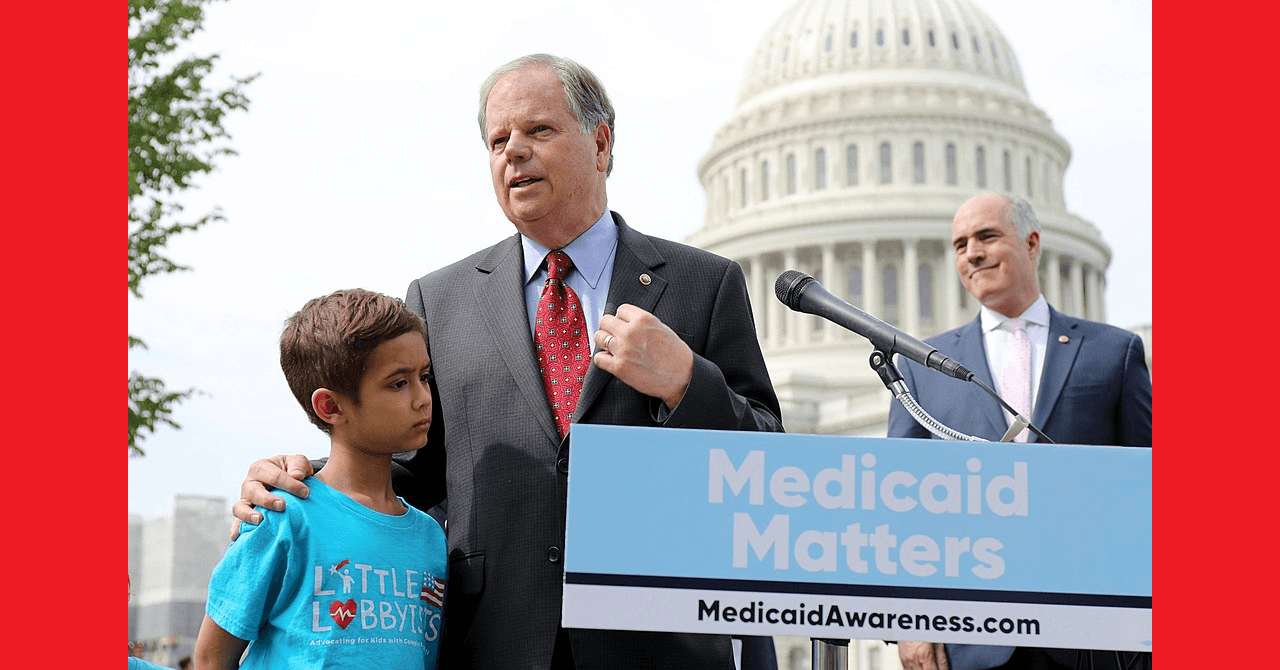Work Requirements will save, not destroy Medicaid
Trump’s Medicaid work requirements empower able-bodied adults to achieve self-reliance while preserving the safety net for the truly needy. This conservative reform ensures fiscal responsibility and strengthens America’s future.

President Donald Trump’s “One Big Beautiful Bill Act” (OBBBA), signed into law in July 2025, introduces transformative reforms to Medicaid, including a pivotal work requirement for able-bodied adults. This provision, requiring 80 hours per month of work, volunteering, schooling, or job training for childless adults aged 18–64, is a cornerstone of Republican efforts to strengthen the safety net while promoting self-reliance. From a conservative perspective, this reform is a pragmatic step toward ensuring Medicaid serves those who truly need it, while encouraging personal responsibility and economic independence.
Strengthening Medicaid for the Vulnerable
Republicans argue that Medicaid, which covers over 70 million low-income and disabled Americans, must be preserved for its intended purpose: a lifeline for the most vulnerable. Sen. Katie Britt, R-Ala., emphasizes, “These programs were intended to be safety nets, not hammocks that people stay in.” The work requirement targets able-bodied adults, ensuring resources are not diverted from children, seniors, and those with disabilities. By focusing on accountability, the reform aims to curb fraud and misuse, with the Congressional Budget Office (CBO) estimating that 1.4 million noncitizens and 9.2 million able-bodied adults who choose not to work could be removed from eligibility, freeing up funds for those in genuine need.
Promoting Self-Reliance and Dignity
The conservative vision prioritizes empowering individuals through work, which fosters dignity and economic mobility. Rep. Nancy Mace, R-S.C., bluntly states, “If you’re an able-bodied worker, get a damn job.” The requirement isn’t punitive; it offers flexibility—volunteering, education, or job training count toward the 80-hour monthly threshold. Sen. Bill Cassidy, R-La., adds, “Safety nets should bounce you to your feet, not be flypaper you stick to.” This aligns with decades of evidence from programs like Temporary Assistance for Needy Families, where work requirements have encouraged self-sufficiency without compromising aid for the truly needy.
Addressing Fraud and Fiscal Responsibility
Medicaid’s projected spending of $8.2 trillion from 2025–2034 demands reform to ensure sustainability. The OBBBA tackles inefficiencies, such as states exploiting provider taxes to draw excessive federal funds, which conservatives liken to “money laundering.” By capping these taxes and tightening eligibility checks, the bill saves an estimated $1.2 trillion over a decade, according to the CBO. These savings offset tax cuts in the megabill, balancing fiscal responsibility with economic growth. White House Press Secretary Karoline Leavitt notes that the reforms address “waste, fraud, and abuse,” ensuring Medicaid’s longevity for future generations.
Countering Democrat Criticisms
Democrats argue that work requirements burden vulnerable populations with paperwork and risk coverage losses, citing studies like the New England Journal of Medicine’s findings on Arkansas’ 2018–2019 experiment, which showed no employment gains but significant coverage losses. Conservatives counter that the Arkansas case was an early pilot with administrative kinks, and modern systems can streamline verification. The Georgia Budget & Policy Institute’s report that 80% of Georgia’s Pathways program costs went to administration is a cautionary tale, but Republicans like Rep. Carlos Gimenez, R-Fla., stress that the OBBBA’s flexible options—work, volunteering, or training—minimize barriers while promoting accountability.
A Path to Prosperity
The Medicaid work requirement isn’t about punishing the poor but empowering them. By encouraging able-bodied adults to engage in productive activities, the reform aligns with conservative values of personal responsibility and limited government. As House Speaker Mike Johnson, R-La., notes, it protects Medicaid for those who rely on it, like disabled children, while ensuring taxpayer dollars aren’t wasted on those who can contribute. With 4.8 million able-bodied adults on Medicaid choosing not to work, per the CBO, this reform is a common-sense step toward a stronger, self-reliant America.
Like this article